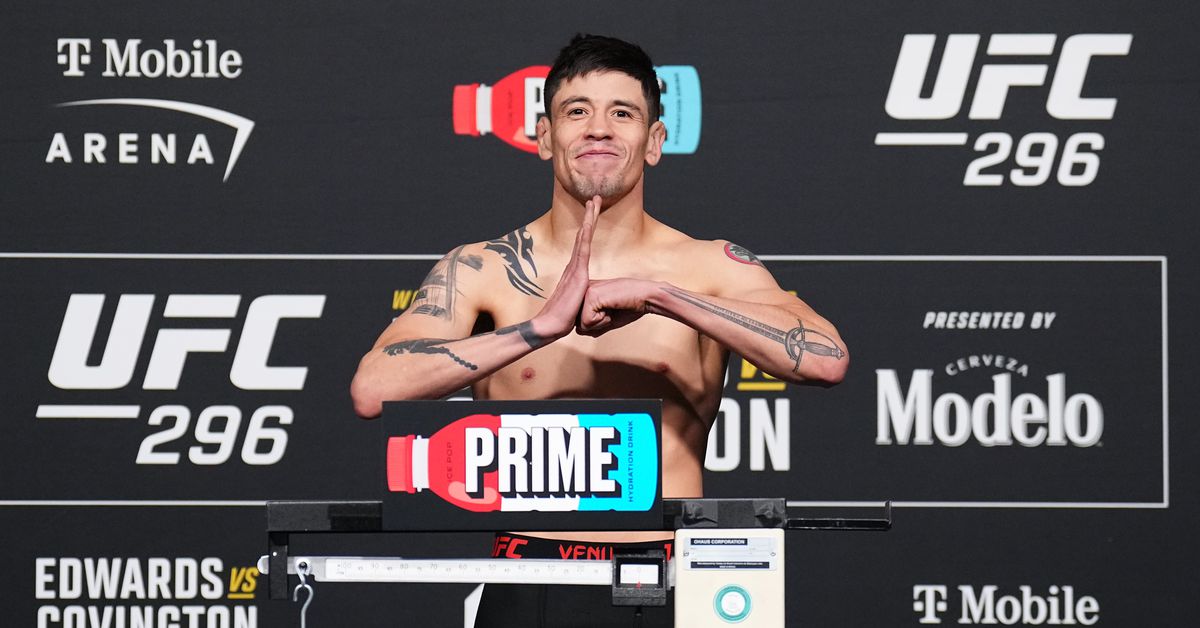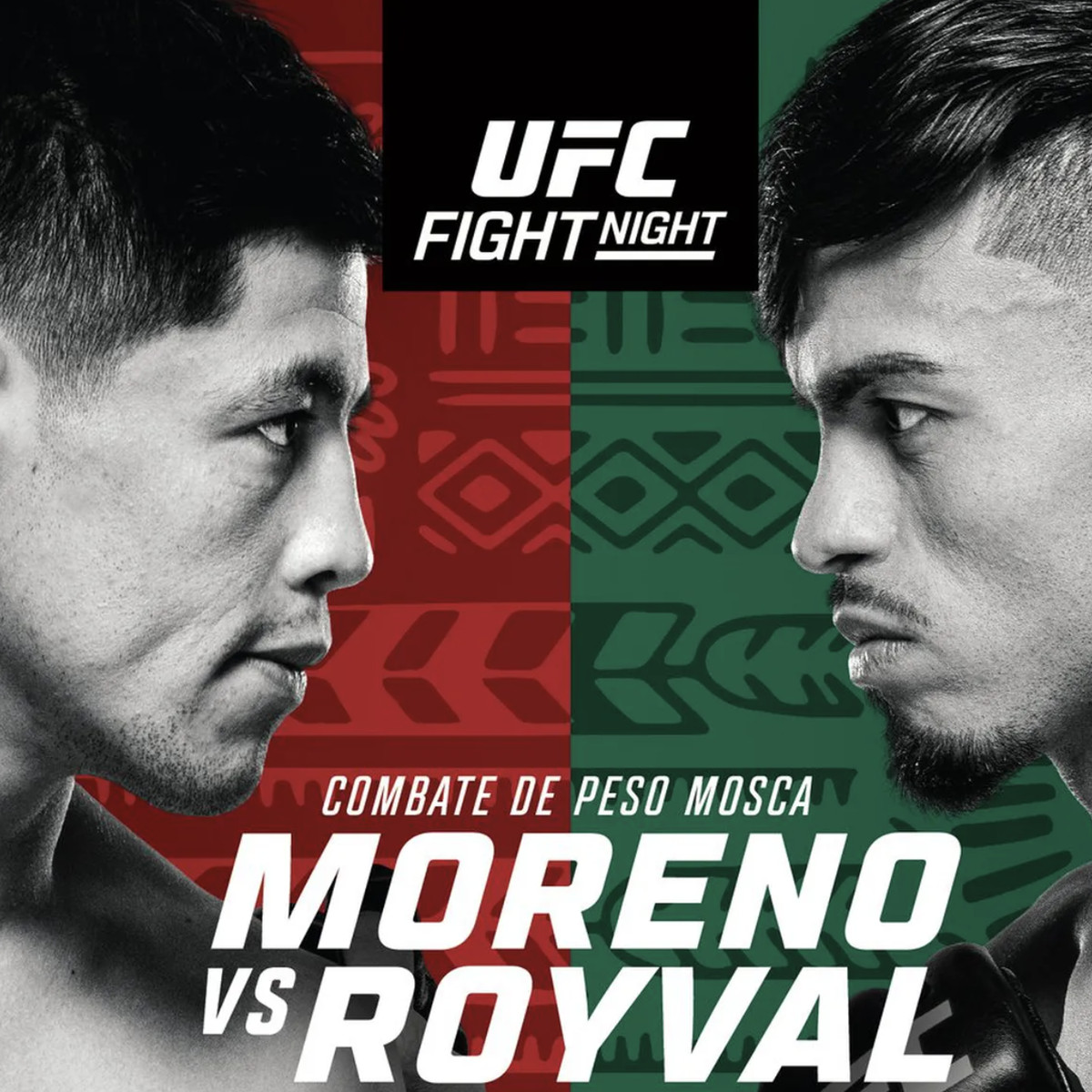Former Ultimate Fighting Championship (UFC) Flyweight champion, Brandon Moreno, looks to return to the win column opposite recent title challenger, Brandon Royval, this Saturday (Feb. 24, 2024) at UFC Mexico City inside CDMX Arena in Mexico City, Mexico.
Brandon Moreno has seen it all inside the Octagon. This is a man who went through a season of The Ultimate Fighter, was unnecessarily cut from the UFC, earned his way back, had a quadrilogy with Deiveson Figueiredo, trilogy versus Alexandre Pantoja, won a UFC title, lost the belt, got it back, then lost it once more.
Oh yeah, and he’s only 30.
Amidst all the chaotic career turns, Moreno has been a consistently excellent fighter and built up an incredible resume at 125 lbs. He’s won bonuses, titles, and “Fight of the Year” honors. It’s hard to argue Moreno as the greatest Mexican-born fighter in UFC history, and there’s still plenty of time left for “The Assassin Baby” to build on his legacy.
Let’s take a closer look at his skill set ...
Striking
Moreno started his UFC career as an aggressive young grappler willing to throw hands to set up his takedowns. Now, he just might be the division’s best boxer!
Notably, Moreno likes to fight heavy on his lead leg. While this habit does leave him a bit more susceptible to low kicks, Moreno knows how to withdraw his lead leg well enough to avoid it costing him fights. From that stance, Moreno can begin to establish his jab — certainly the division’s best — as well as begin to look for his counter shots by pulling onto the back leg and then firing (GIF).
Moreno’s first bout with Kai Kara-France was the first real demonstration of Moreno’s boxing improvements that eventually earned him a title. Kara-France is a well-oiled machine on the feet, an excellent mix of feints, distance management, and smart combinations. However, once Moreno’s jab began to land, Kara-France lost confidence in his ability to lead. Each time he tried to fire punches, Moreno would pull his head back out of range to make his foe miss then immediately fire back multiple punches. If Kara-France hung at distance rather than moved forward, the jab would snap his head back repeatedly.
Part of what makes Moreno’s jab so effective is his arm movement. Moreno keeps his lead hand low, which adds a blinding angle to the shot. However, he also tends to let his arm hand half-extended towards his opponent, cutting down on the distance his jab has to travel before landing. Less distance equals a faster connection, even if it may not be his most powerful jab possible. He’ll also build on the jab by doubling it up, targeting the body, hooking off the jab, or switching to opening combinations with a lead hand uppercut.
Over time, Moreno has built upon that base with so many new weapons, even if the overall strategy of jabbing and counter remains similar. For example, he stung Deiveson Figueiredo with a variety of counters in their numerous fights. Few fighters in MMA are slipping off to the left to avoid the right hand at all, let alone doing so then returning with a double left hook (GIF). Moreno’s comfort in the pocket has grown tremendously, opening up classic boxing counters like that body-head hook combo.
In addition, Moreno has become more and more active with counter elbows, a useful trait against maulers like Figueiredo and Pantoja. As his opponent looks to step forward, Moreno will stand his ground, slip his head off the center line, and look to greet his foe with an elbow (GIF). This is a great tactic, because it requires much less precision than a counter punch.
As Moreno’s hands have grown effective, his kicks have only improved. He’s always been a powerful kicker, but early in his career, Moreno was just blasting naked kicks — which still did result in a big stoppage against Dustin Ortiz (GIF). More recently, he’s setting them up effectively, such as when he played the calf kick off the jab well against Figueiredo.
The best example came in the rematch against Kai Kara-France. Kara-France found some early success with his movement and feints, chopping at Moreno’s lead leg and generally doing well to avoid his biggest shots. However, Moreno begin to pick up on his movement patterns, notably catching Kara-France circling to his right/Moreno’s left. That trend saw Moreno punctuate his combinations with several left hooks, but the finish came when he absolutely charged into a left kick to the body.
Kara-France moved right into the kick, and he hit the floor in a heap (GIF).
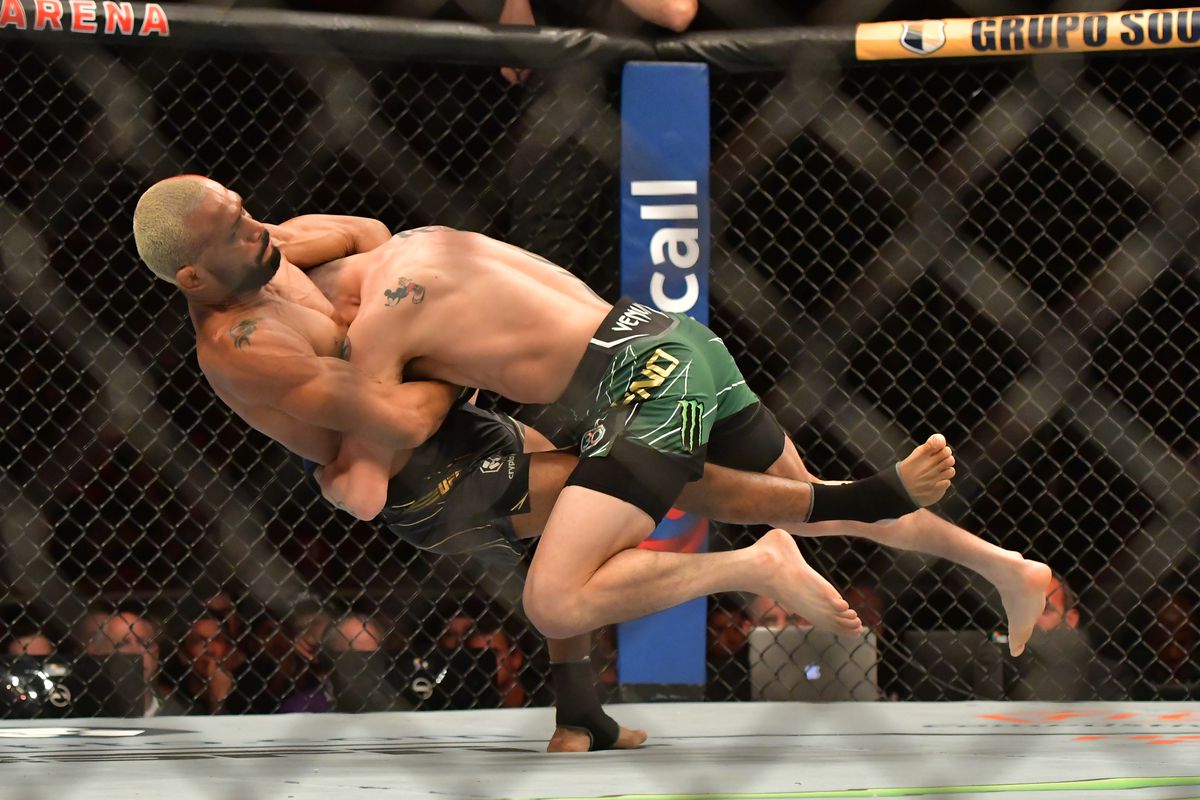
Wrestling
Moreno’s wrestling is an interesting case in that it’s largely excellent, but it has become somewhat secondary to his stand up attack.
Much of the time, Moreno uses his combinations to raise his opponent’s hands. Once they’re blocking his wide punches, he can pretty easily duck into the double-leg. The Mexican athlete prefers to shoot along the fence, where he can take his time to lock his hands. Once that happens, Moreno will easily lift his foe into the air and bring them down with a slam. Moreno will also look to finish his double leg by adding a trip with the rear leg if out in the open.
In recent years, Moreno has done more wrestling from the body lock. Often, he’s using his head movement to slip a punch, secure a grip around the waist, then take his opponent over that lock. It’s good tall (for Flyweight) man clinch wrestling, as Moreno uses the opposing forces of his waist lock and head position to bundle his opponent over.
Defensively, Moreno is not an impossible man to take down. He steps forward hard into his own combinations, and occasionally, naked kicks have been caught and converted into takedowns too. However, he is one of the division’s best scramblers (GIF).
There’s a few important principles to effective scrambling, but the most important one is simple: never settle. Moreno embodies this idea, always moving, turning, rolling, and fighting for underhooks. He does an excellent job of fighting his opponent’s grip throughout transitions, creating just enough space to turn and face his opponents.
Pantoja managed to win rounds with back control, but it was far from easy, and the Brazilian is possibly the best back taker in the UFC today (it’s him or Aljamain Sterling).
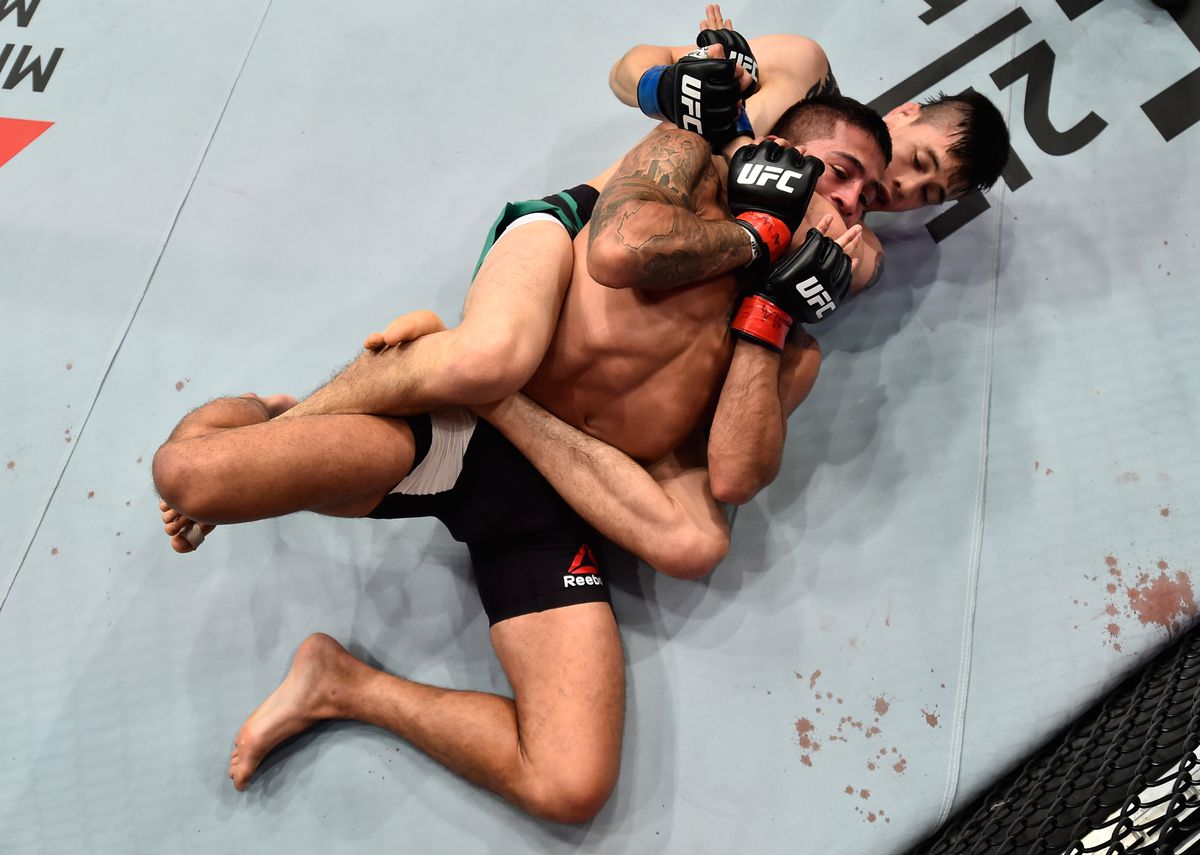
Brazilian Jiu-Jitsu
A jiu-jitsu black belt, Moreno has finished 11 of his foes via submission.
“The Assassin Baby” definitely prefers to work from top position. He’s all about scrambling to the back, looking to jump into the body triangle whenever his opponent turns away. Moreno generally encourages his foe to do that by softening him up with elbows and punches from top position, and Moreno is quick to spin around from the front headlock as well.
His aggressive back take game has resulted in six rear naked choke wins. Against Brandon Royval, he also showcased an ability to control the single-leg back control, though the twister did not materialize.
Moreno’s introduction to UFC’s Flyweight division came in the form of a nasty guillotine choke over Louis Smolka. He landed an early takedown but didn’t do all that much with it. When Smolka scrambled back to his feet and went for a single leg, however, Smolka attempted to run the pipe with his head on the outside. Moreno grabbed the neck and fell back, locking in a full guard. Despite the positioning, Moreno was able to execute a high-elbow guillotine, cutting off both sides of Smolka’s neck and forcing the tap.
Finally, Moreno is active from his back as well. He’ll throw up his legs looking for arm bars and triangles, but Moreno actually pulled off a very sweet kimura sweep on an excellent wrestler in Dustin Ortiz. When a fighter is hugging on the hips very tightly, intent on maintaining top position, that hip bump/kimura can be especially effective.
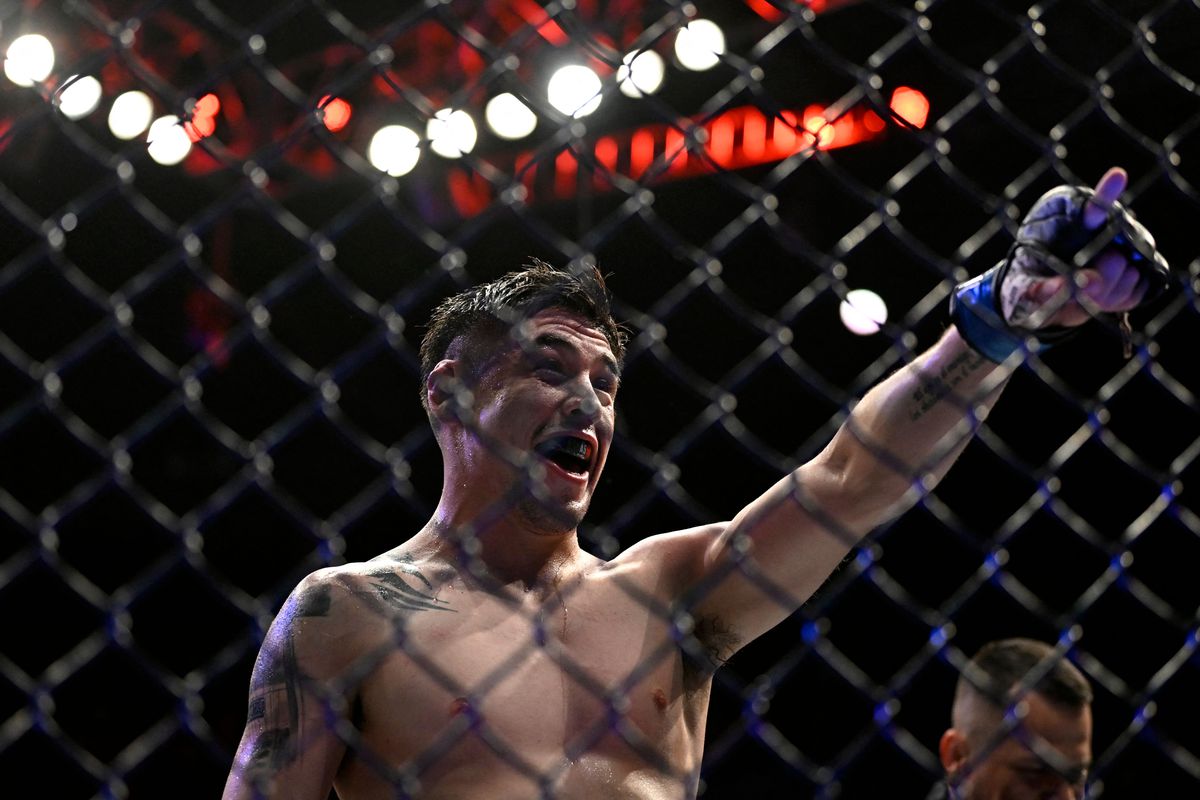
Conclusion
Moreno is a well-rounded and highly experienced former champion. Even after injuring his hand early in the fight, he fought well to a split-decision against the current Flyweight kingpin. Royval remains a tough task, but the chances of Moreno working his way back to 125-pound gold remain strong.

